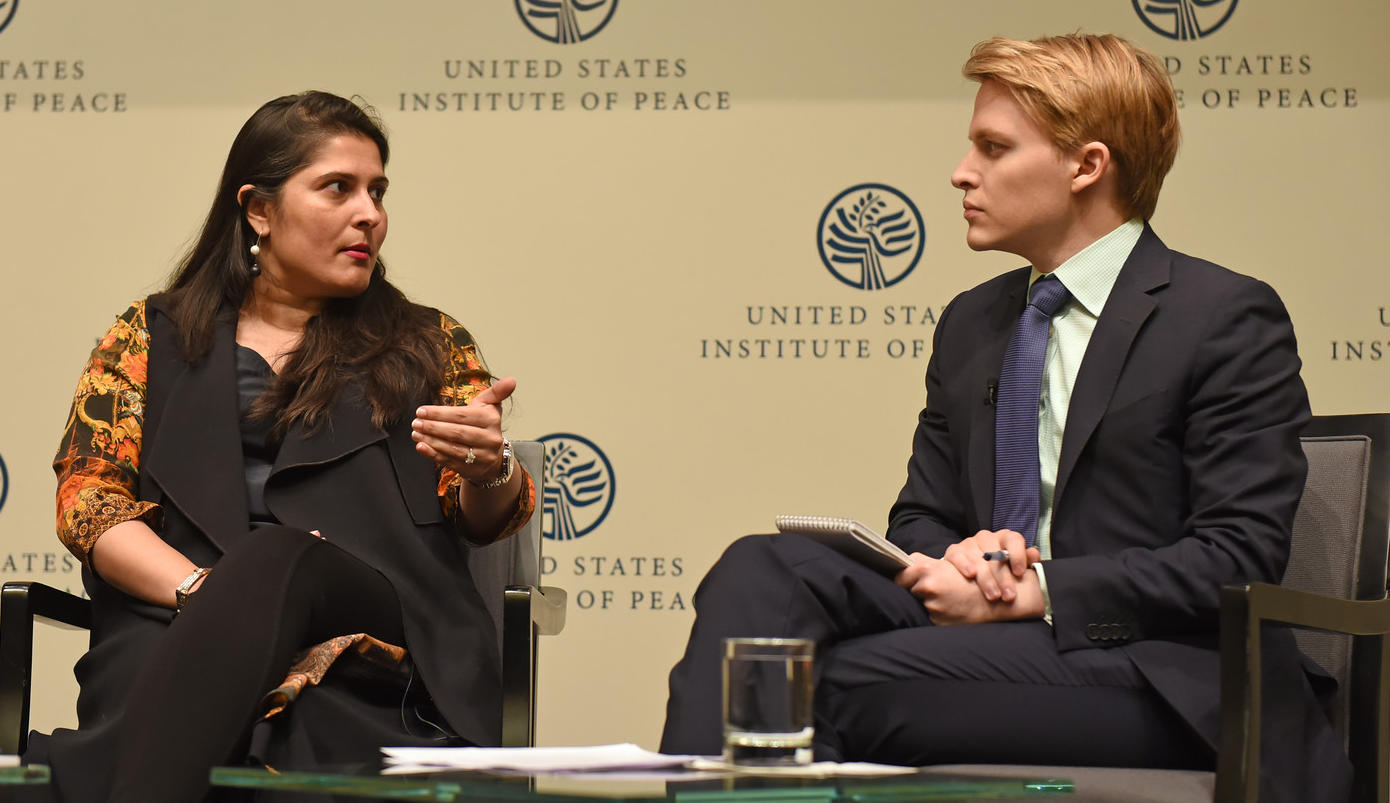Killing Pakistani Women for 'Honor': A Filmmaker’s Tale
Women in Pakistan are murdered routinely, and usually with impunity, for allegedly staining the “honor” of their families—often by marrying over the objection of their relatives, and even for glancing at a man in the street. Nearly 1,000 such “honor killings” are reported publicly each year, but uncounted others add to a largely hidden tide of brutality. Pakistani filmmaker Sharmeen Obaid-Chinoy threw a spotlight on this violent seam of life in her country—and won an Academy Award—with her documentary, “A Girl in the River.” She screened and discussed her film on May 16.

Obaid-Chinoy’s film tells the story of Saba, 18, who falls in love with a boy in her hometown and marries him. Deprived of their control over her life, her father and uncle bundle her into a car one night, shoot her in the head and dump her body in a nearby river. Stunningly, she survives—but neither her attackers, nor much of Pakistan, see their act as a crime. Patriarchal traditions that often treat women as men’s property mean that they are likely to walk free.
On January 14, hours after Hollywood’s Academy of Motion Picture Arts and Sciences nominated “A Girl in the River” for an Oscar, Pakistani Prime Minister Nawaz Sharif promised to prepare legislation outlawing honor killings. Such bills have died in Pakistan’s parliament before, and existing laws go unenforced—but Obaid-Chinoy’s film has forced an unprecedented examination of Pakistan’s legalized murder of women, and shows the power of film to push for social change. In an event co-sponsored by the State Department, Obaid-Chinoy screened the 40-minute film and then sat down to discuss it with other advocates for social justice and the audience. Continue the conversation on Twitter with #AGirlintheRiver.
Speakers
Nancy Lindborg, Welcoming Remarks
President, U.S. Institute of Peace
Evan Ryan, Introduction
Assistant Secretary of State for Educational and Cultural Affairs
Sharmeen Obaid-Chinoy
Director, A Girl in the River: The Price of Forgiveness
Abigail Disney
Filmmaker
Ronan Farrow, Moderator
Social Activist & Journalist



